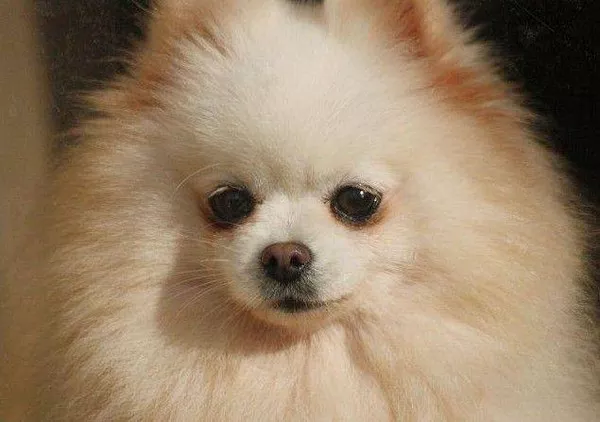Pomeranians are a popular breed of small dogs known for their fluffy coats and playful personalities. Like all puppies, Pomeranians go through a teething phase where they lose their baby teeth and grow their adult teeth. In this article, we will explore when a Pomeranian stops teething, what to expect during the teething phase, and how to help your Pomeranian through this process.
1. What is Teething in Pomeranians?
Teething is a natural process that all puppies go through as they grow and develop. During this phase, puppies lose their baby teeth and grow their adult teeth. Pomeranian puppies typically start teething at around 3 to 4 months of age and continue until they are around 7 months old.
Teething can be a painful and uncomfortable process for puppies, as their gums may be sore and swollen. Puppies may also experience an increase in chewing behavior and may be more prone to chewing on furniture, shoes, and other household items.
2. Signs of Teething in Pomeranians
There are several signs that your Pomeranian may be teething. These include:
Chewing behavior: Puppies may be more prone to chewing on household items during the teething phase.
Drooling: Teething puppies may drool more than usual.
Swollen or bleeding gums: Puppies’ gums may be sore and swollen during the teething phase, and they may also experience some bleeding.
Loss of appetite: Puppies may be less interested in eating during the teething phase due to sore gums.
If you notice any of these signs in your Pomeranian, it is important to provide them with appropriate chew toys and other items to help soothe their gums and alleviate their discomfort.
3. When Does a Pomeranian Stop Teething?
Pomeranians typically stop teething at around 7 months of age. By this time, they should have all of their adult teeth and should no longer experience the discomfort associated with teething.
It is important to note that the teething process can vary from dog to dog, and some Pomeranians may stop teething earlier or later than others. It is also possible for adult dogs to lose teeth due to dental disease or injury, but this is not related to the teething process.
4. How to Help Your Pomeranian Through the Teething Phase
There are several things you can do to help your Pomeranian through the teething phase. These include:
Providing appropriate chew toys: Puppies may be more prone to chewing on household items during the teething phase, so it is important to provide them with appropriate chew toys to help soothe their gums and alleviate their discomfort. Look for toys that are specifically designed for teething puppies and are made from safe, durable materials.
Offering frozen treats: Frozen treats, such as frozen carrots or ice cubes, can help soothe sore gums and provide relief during the teething phase.
Providing a soft diet: Puppies may be less interested in eating during the teething phase due to sore gums. Providing a soft diet, such as canned food or moistened kibble, can make it easier for them to eat and help ensure they are getting the nutrition they need.
Regular dental care: Good dental hygiene is important for all dogs, but it is especially important during the teething phase. Regular brushing and dental check-ups can help prevent dental problems and ensure your Pomeranian’s teeth and gums are healthy.
5. What to Expect During the Teething Phase
The teething phase can be a challenging time for both puppies and their owners. Puppies may experience discomfort and pain as their adult teeth come in, and they may also be more prone to chewing on household items.
During the teething phase, it is important to provide your Pomeranian with appropriate chew toys and other items to help soothe their gums and alleviate their discomfort. You may also want to consider offering frozen treats, such as frozen carrots or ice cubes, to help soothe sore gums.
It is also important to be patient with your Pomeranian during the teething phase. They may be more irritable or less interested in playing or socializing during this time, but this is normal and should pass as they grow older.
6. Dental Care for Pomeranians
Good dental hygiene is important for all dogs, but it is especially important for Pomeranians during the teething phase. Regular brushing and dental check-ups can help prevent dental problems and ensure your Pomeranian’s teeth and gums are healthy.
When brushing your Pomeranian’s teeth, it is important to use a toothbrush and toothpaste specifically designed for dogs. You should also be gentle and avoid brushing too hard, as this can cause discomfort or injury to their gums.
Regular dental check-ups can help identify any dental problems early on and prevent them from becoming more serious. Your veterinarian may also recommend dental cleanings or other treatments if necessary.
7. Conclusion
In conclusion, teething is a natural process that all puppies go through as they grow and develop. Pomeranian puppies typically start teething at around 3 to 4 months of age and continue until they are around 7 months old.
During the teething phase, it is important to provide your Pomeranian with appropriate chew toys and other items to help soothe their gums and alleviate their discomfort. Regular dental care is also important to ensure your Pomeranian’s teeth and gums are healthy.
By understanding the teething process and taking steps to help your Pomeranian through this phase, you can ensure they grow up to be healthy and happy adult dogs.


